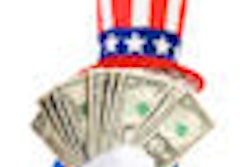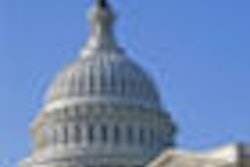More than half of all Americans with employer-sponsored dental benefits are "likely or very likely" to drop their coverage under healthcare reform financing proposals that tax health benefits, according to a July poll conducted by Opinion Research for the National Association of Dental Plans (NADP).
Specifically, 56% of Americans would drop "family" dental benefits if annual taxes of $300 were imposed and 38% of Americans would drop their "employee-only" dental benefits if $100 was added to their annual tax bill, according to the NADP. The tax amounts were calculated using the marginal tax rate plus Federal Insurance Contributions Act (FICA) taxes on the average annual premiums for employer-provided dental plans ($1,000 for families and $300 for individuals).
With 97% of dental benefits in the U.S. provided through employers and other groups, the poll results indicate that 81.7 million Americans are likely to join the ranks of the dentally uninsured if these benefits are taxed. Increases in taxpayer-supported public dental programs such as Medicaid and the Children's Health Insurance Program would likely follow, according to the NADP, since 44% of Americans with dental benefits are in households with incomes of $50,000 or less. Many adults in these households would simply remain uninsured, as only nine states now provide adult dental Medicaid benefits, the NADP added.
"These results are alarming," said Evelyn Ireland, NADP executive director. "Three decades of steady increases in Americans with dental coverage and parallel improvements in oral health would be wiped out by taxation of dental benefits. The impact of taxation falls heaviest on families."
The loss of dental benefits resulting from new taxes on those benefits is likely to have significant negative impacts on Americans' oral and overall health, the NADP added. Without regular dental exams, diseases will go undiagnosed and Americans will experience more extensive and costly dental and medical procedures.
"What this poll, combined with the facts about the efficacy of dental benefits, tells us is the oral and overall health consequences of any form of taxation of benefits will ultimately add to the healthcare costs of the country and negatively impact the overall health of Americans," Ireland said. "This poll validates what our industry and others have communicated to Congress about the unintended consequences of taxing health benefits. Ultimately, taxation of health benefits to fund healthcare reform will diminish Americans' dental health, which would be counterproductive to overall healthcare cost containment."
Copyright © 2009 DrBicuspid.com



















